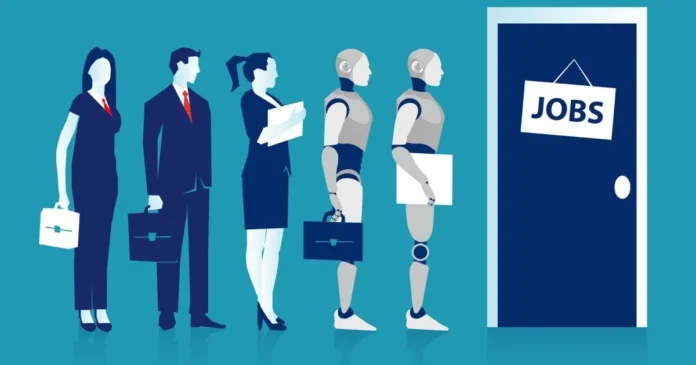Experts have warned that AI will destroy thousands of management and white-collar positions and completely disrupt the labor market. Outplacement company Challenger, Gray & Christmas found that since last May, corporations have lost 4,628 jobs, with AI being stated as the reason. However, the actual figure is probably far higher.
AI will drastically change the employment market and remove some types of occupations, according to OpenAI CEO Sam Altman. Last July, he spoke with The Atlantic about how many AI developers “pretend” that their technology will only ever be useful as a supplement and never replace humans. For Altman, “jobs are going to go away, full stop” was the final word.
Alphabet, the parent company of Google, Duolingo, and UPS are just a few of the companies that have announced layoffs in recent weeks, all of which are connected to artificial intelligence.
The rapid adoption of artificial intelligence is starting to affect employment in many industries, according to Andrew Challenger, senior vice president of Challenger, Grey & Christmas. This is true in the media and technology industries in particular, but it is felt across the board.

“That said, companies are not outright blaming AI for many layoff decisions,” he added. He pointed out that most companies use the word ‘cost-cutting’ to describe job layoffs, which makes it difficult to assess the influence of AI.
Rapidly producing high-quality textual and visual content is within the capabilities of generative AI programs like OpenAI’s ChatGPT.
Artificial intelligence (AI) has the potential to reshape the information and knowledge economy soon, much like robotics and automation did to the industrial sector.
Challenger recently spoke to the Wall Street Journal on how this technological wave might either replace or improve upon many white-collar, critical-thinking employment.
In a recent announcement, the well-known language learning program Duolingo revealed plans to use artificial intelligence (AI) to generate a majority of its material, leading to a 10% reduction in staff.
As part of its plans to decrease hardware as well as internal software expenses and redirect investments towards artificial intelligence, Google recently announced hundreds of layoffs. As they try to persuade investors that AI will increase efficiency, companies are generally careful to acknowledge that AI is cutting jobs.
The biggest layoffs ever announced by UPS, which occurred at the end of January, affected 12,000 employees. CEO Carol Tom hailed AI as a tool to save expenses, using the fact that salespeople could put together bids without involving price specialists as an example.
According to Bloomberg, the corporation subsequently changed its stance, publicly stating that AI is not displacing humans. Jobs most threatened by AI replacement were identified in a study conducted by Princeton professor Ed Felten.
Among these professions, you can find management analysts, attorneys, educators, loan officers, psychologists, public relations specialists, real estate agents, judges, financial advisors, and managers. Nonetheless, new types of employment may emerge as a result of AI’s development.
The number of job posts referencing artificial intelligence has nearly doubled since 2021, according to LinkedIn. However, a separate analysis by Challenger, Gray & Christmas found that the technology was responsible for more than 4,000 job losses in May of last year.
The percentage of LinkedIn job postings mentioning artificial intelligence (AI) or generative AI has increased by 17% compared to non-AI job listings during the past two years.
A Pew Research Center analysis found that jobs in the United States that are most at risk of being taken over by AI are technical writers, web developers, and budget analysts. On the other hand, occupations like barbering, firefighting, and pipelaying are among the least threatened.
Chief executive officers, veterinarians, designers for interiors, and sales managers are at the center of the list of most vulnerable occupations.
Machine learning engineers, data scientists, developers of software, and scientists specializing in natural language processing (NLP) are among the tech-based careers that will experience rising demand shortly.
‘We’re seeing demand for AI skills increasingly appear across a wide range of industries and geographies,’ said Olivier Sabella, VP of LinkedIn Talent Solutions, in interviews with CNBC.
“These job posts vary from roles where professionals will directly work on AI development, such as AI engineer, to job postings where AI is listed as a required skill.”




